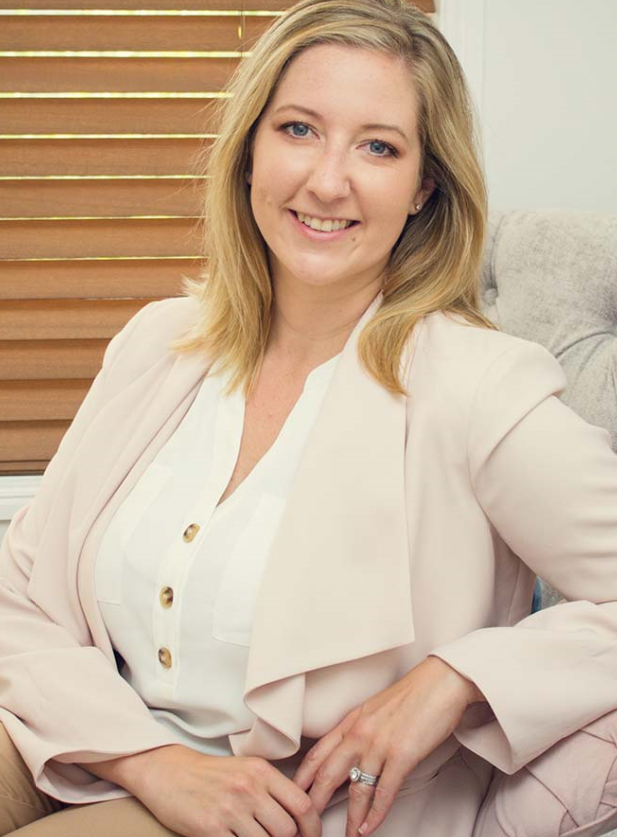
Financial Planning is undergoing much Legislative change. It is imperative that you choose a financial planner carefully. Mark discusses what you need to know when using the services of a financial planner.
| Topic: Author: |
Dealing with a Financial Planner Mark Rantall former CEO, Financial Planning Association of Aust. |
 |
Mark was the Chief Executive Officer of the Financial Planning Association of Australia (FPA) from 2010 to 2016 and is also a CERTIFIED FINANCIAL PLANNER® professional. During this time, Mark has spear-headed the campaign to raise awareness of the higher standards of FPA members to the Government, media and other industry stakeholders on behalf of the FPA’s 8,500 practitioner members and the 5 million clients they advise.
Q. Mark, thank you very much for joining us.
Thanks Carolyn.
Q. Mark, as you know, I have a website for people who are going through divorce. It can be a very traumatic and stressful time. Some people may not have had a lot to do with financial planning.
I wanted to ask you some fairly general questions about it. For example, what do Financial Planners do? It’s a very general term, and it seems to be used in different areas.
A Financial Planner really helps you navigate through a number of different decisions that you might have to make. My view is that the very best Financial Planners help protect you.
They help protect you from making poor investment decisions. They help protect your life and livelihood and family through appropriate estate planning and relevant insurances that would go with that Plan. They help protect your goals and aspirations by creating a plan for you and importantly helping you stick to that plan to deliver to your financial goals and deliver financial freedom.
Q. I know you have a very comprehensive website, but just in your own words, could you tell us a little bit about the Financial Planning Association of Australia ?
The Financial Planning Association, goals and objectives is to elevate financial planning to a respected profession. It is a professional association for Financial Planners. It has over 7500 practitioner members in Australia with 5500 Certified Financial Planners, which is the premium designation for Financial Planners. At our heart, we’re there to act in the public interest and importantly the cornerstone of what we do ... is put client interests ahead of anybody else’s.
Q. How do you put a client’s interest ahead of anything else?
The heart of any profession is firstly their educational requirements. We have a certification called Certified Financial Planner. To enter into that program you need an undergraduate degree. You need to complete five units of study at a Masters level and three years at a supervised level. The first important requirement is to be competent in the advice that you give, and education and certification helps you do that.
The second requirement is to follow a code of conduct and practice. We have a world class professional conduct and practice. The first ethical principle in that code is putting client interests ahead of anybody else’s ... and that’s what we expect our members to sign up to.
Importantly then, there is a way of going about advice and providing that embedded in our standards, those are recognized by the financial ombudsman. They use our standard to help them make determinations. It’s a great way of giving advice to clients - that they know is in their best interests and is appropriate and that it can be followed.
Q. I know that you’re talking about a Certified Financial Planner. Do you also have other planners on your website as well?
Yes, there’s 2000 Associate Planners and 5500 Certified Planners. The Associates are those people who may have been practicing for many years and haven’t gone through the certification process, or they might be currently going through the certification process. Before they’re actually certified they have to go into the Associate category. It doesn’t necessarily mean that they’re not as good as the next Financial Planner, but the Certified Financial Planner designation is the one consumers should be looking for.
Q. Can someone just do the course plus their degree, and then become a Financial Planner? How much experience do they have to do before they actually undergo the Certified one?
Before you’re actually certified as a Certified Financial Planner, CFP, you have to do five units of study that we operate through Deakin University, which is at a Master’s level. Plus, you have to have three years supervised experience before we’ll grant you certification status.
Q. Why wouldn’t somebody just go to a bank?
Well, people can go to banks. Many Certified Financial Planners are also operating in banks. They’re operating at superannuation funds and they operate in their own practice.
We have Certified Financial Planners in many organizations right throughout Australia. Many of the banks have a standard that they want their Financial Planners to gain their certification over time. There are a number of different areas that you can go to. You can go to the banks. You can go to one of the firms that might be franchised to a bank. You could go to somebody that has their own license and operates independently of that structure. Some people like going to a brand of the bank, and some people don’t. It’s really a choice by the consumer.
Q. So your association is for all Financial Planners regardless of where they work?
Yes. As any professional association, we’re agnostic in terms of employer. We’re agnostic in term of licensing, similar to any other profession. What we’re focused on is making sure that competency standards are high and ever increasing, that people are well-educated and certified to be able to give advice. That they are experienced, and that they’ve signed up to a professional conduct and importantly ... to put clients’ interests ahead of anybody else’s.
Q. I notice that there’s always awards being bandied around on websites and various advertising.
If someone sees a planner that’s won an award as opposed to a planner that hasn’t won an award? What does that mean?
Well, Carolyn, it’s a good question. Certainly it means that they’ve applied to go through a process of being scrutinized, so that’s the first thing.
Having applied to go through that process, in our case we set up a panel of very experienced Financial Planners. They assess that person and how they do business. They assess a standard plan, so they might provide a financial plan that they’ve provided to a client, so that’s their real-life plan. That’s assessed against our code of conduct and standards to make sure it meets it.
If they win that award, it is judged that theirs is the best financial plan provided within that criteria.
Q. What happens if somebody goes and sees a planner and they’re not happy with them or the advice they’ve been given. Do you have a system they can fall back on, particularly if it’s a member of your association?
We have a number of systems that can assist consumers in that regard. The first thing I’d say if they’re not happy with the advice, they shouldn’t take it, and they should seek advice from somebody else. It’s no different to a doctor, lawyer or accountant. If you’re not happy with the advice that you’re getting, then you should seek another opinion.
If that consumer or person wants to take that matter further, we have a number of different ways that can happen. They can write to us which is one way. We have a confidential plan called FPA confidential. A consumer can go into that website and report one of our members if they wish, and we will take the appropriate action. They could go to the Financial Ombudsman scheme and report that person into that scheme. They could simply ring us up and talk to us if they wish to.
Q. Taking into account the human error, I’m sure there are times when things can go wrong. So when seeing a Financial Planner, how does one work out if they are a good Financial Planner?
What sort of questions should they ask?
it’s a great question Carolyn. There has to be some sort of rapport built between the consumer and the Financial Planner, because you’re really sharing intimate details of your financial situation.
1. I think you’ve got to feel comfortable in discussing that with whomever you’re seeing.
2. The other thing that consumers should be looking for -
- firstly they should be looking to see that that person is a member of a professional association, - that they are well-educated and
- have passed the appropriate examinations. In our case it’s a Certified Financial Planner which
they should be looking for.
3. They also should be asking that Financial Planner how they charge for their services.
4. They should be seeking out a Financial Planner that charges a fee for service , and not taking
commissions particularly on investment.
That is already been banned for our members and it will be banned effective the 1st of July 2013 under new Future of Financial Advice reforms.
5. They should be given what is called a financial services guide, which outlines all the financial details that a person would need to make a decision as to how that Financial Planner charges and any conflicts that they might have.
6. They should ask who owns their license,
- who they license through,
- ask them about their experience and
- also have they got any referees that they could contact.
Q. When you say who are they licensed through, you mean the organisations they get their products from, for example a bank or a variety of banks?
Yes. A good question to ask is,
“How limited are you in the' product set' that you can provide for me?”.
There will be legal requirements from next year ( 2013 )that Financial Planners have to act in the best interest of clients. That probably should go without saying, but I think asking the appropriate questions is really important to gain your comfort factor.
Most Financial Planners will have no issues with answering those sorts of questions.
Q. You’ve just a mentioned a few things that I was going to touch on e.g. financial services guide and how planners get paid .. being fee for service. If somebody has seen a planner and they say, “Right, I’m happy to go ahead.”, they should have received a financial services guide which details how they operate and what they can be offered? Is that correct?
That is certainly correct, Carolyn, they need to receive a financial services guide.
It’s a legal requirement to provide that. If there are any investment recommendations they also should receive -
- a statement of advice, which is also a legal requirement which outlines the recommendations and captures in it the goals and objectives of that client, and
- any costs involved with the recommendation and
- what costs might be involved in implementing that recommendation.
Q. You did mention about the new change in the legislation with regard to they’re being paid " a fee for service ". When does that take effect?
1st of July 2013 for all Financial Planners, but our members are already required not to take commission on investments.
Q. So from 1st of July 2013, they cannot take fees from investment, but must charge an hourly rate. Is that correct?
Not quite. They cannot take a commission from an investment, they’ll be able to take commissions from personal advice insurance, which is a different sort of product. They will not be able to take a commission from investment.
Their charging mechanisms will be up to them as to how they charge obviously. It may not necessarily be an hourly rate, it might be a flat fee. It might be an asset-based fee depending on the structure of their business. That fee, even if it comes out of what’s called a platform, has to be totally transparent and has to be agreed to by the client. It’s a much better way of operating than what it’s been in the past.
Q. Mark you just mentioned a ' platform ' - could you explain what it is?
A platform is an administrative service that captures all the information from various product
providers and consolidates that information into one report that is provided to consumers.
Q. How did payment by commission work in the past? What is the difference?
Many advisors have already moved on from commissions. The key difference is that in the past some Financial Planners got paid through a commission which was traditionally embedded into the product. It could not be unbundled out of that product.
That commission whilst it was always disclosed, wasn’t transparent in terms of ongoing reporting. The client had no control over it, so the client couldn’t say, “I don’t want to get advice anymore, so I don’t want you to get this commission".
This new system means that whatever the Financial Planner will be charging is totally transparent, and more importantly, consumers have control over that. In other words, they can turn it off at any time if they no longer get advice.
Q. Is there anything else somebody seeing a Financial Planner for the first time might need to know, Mark?
I think a good test is that the Financial Planner should be asking you questions, not the other way around.
By all means, you should feel free to ask as many questions as you want, but the core of financial planning is really understanding you, the client, understanding what your circumstances and trying to build a plan to take you forward from where you are today to get you to where you want to be in the future.
By definition, you can’t necessarily jump into solution mode too early. If somebody is jumping into solution mode too early and trying to sell you a product, without really understanding your circumstances - that should be a red flag.
Particularly those people who are going through divorce, it’s an extraordinarily difficult time, I’ve been through it myself.
Sometimes you don’t always make the best decisions when you’re under that sort of pressure. You need a little bit of help to navigate your way through that. It’s great to have another pair of eyes and ears and a mind on your circumstances that isn’t involved in the emotional turmoil that you’re going through.
I think there’s real benefit in seeing a Financial Planner at this time. Just as you need a panel of advisors, whether it be a lawyer at the time, and maybe an accountant to help you navigate your way through that time. A Financial Planner can sort of sit back, look at your overall circumstances, think about where you’ve been, where you are now, and where you want to be in the future, and help build a plan. I think that’s the real benefit of what a Financial Planner can do, particularly during a very difficult time.
Q. That’s actually a good point to make. When someone is going through a divorce, at what point should they see a Financial Planner - at the end of a property settlement or through the whole process?
My strong advice would be through the whole process.
I think the earlier you get a professional engaged in the process, the better off you are because you don’t want to be making a decision that you can’t undo.
Particularly going through a divorce, there’s some massive decisions to be made, some of the biggest decisions you’ll make in your life.
The more advice you can get , the better off you’re going to be. The earlier you get that advice, the more chance you’ve got of making the right decisions.
Q. Mark thank you so much for your time today, I do appreciate it. Thank you.
My pleasure, thank you so much Carolyn.










